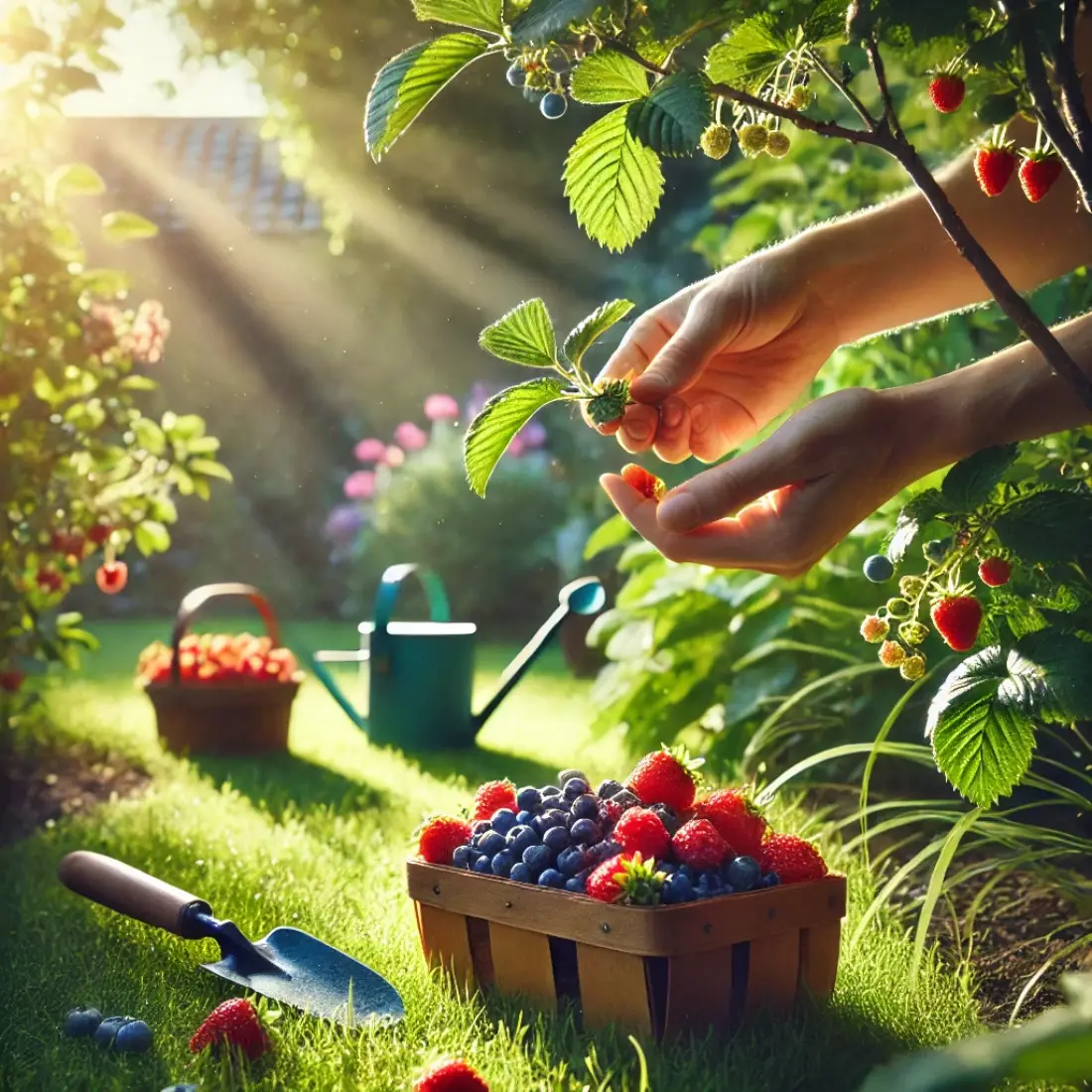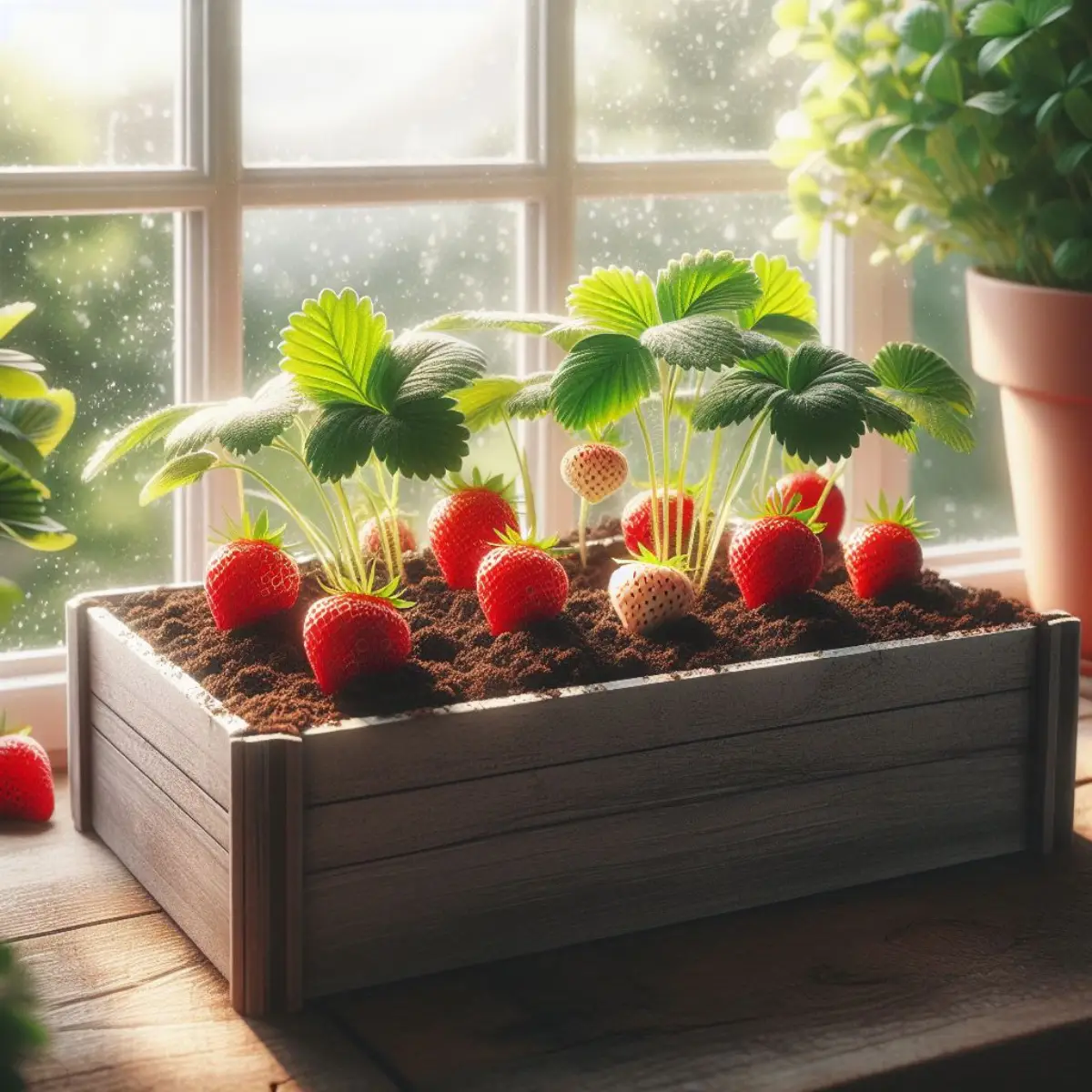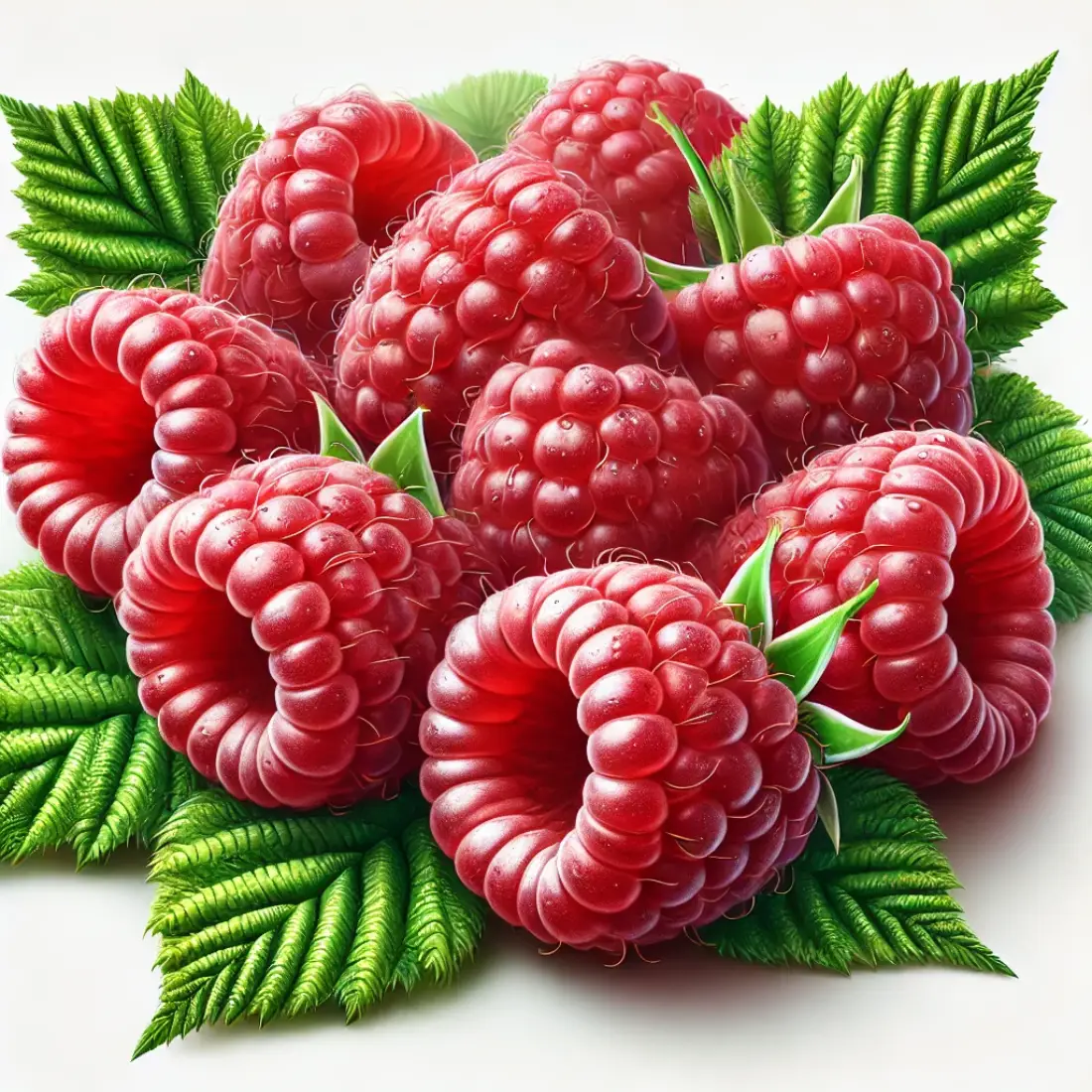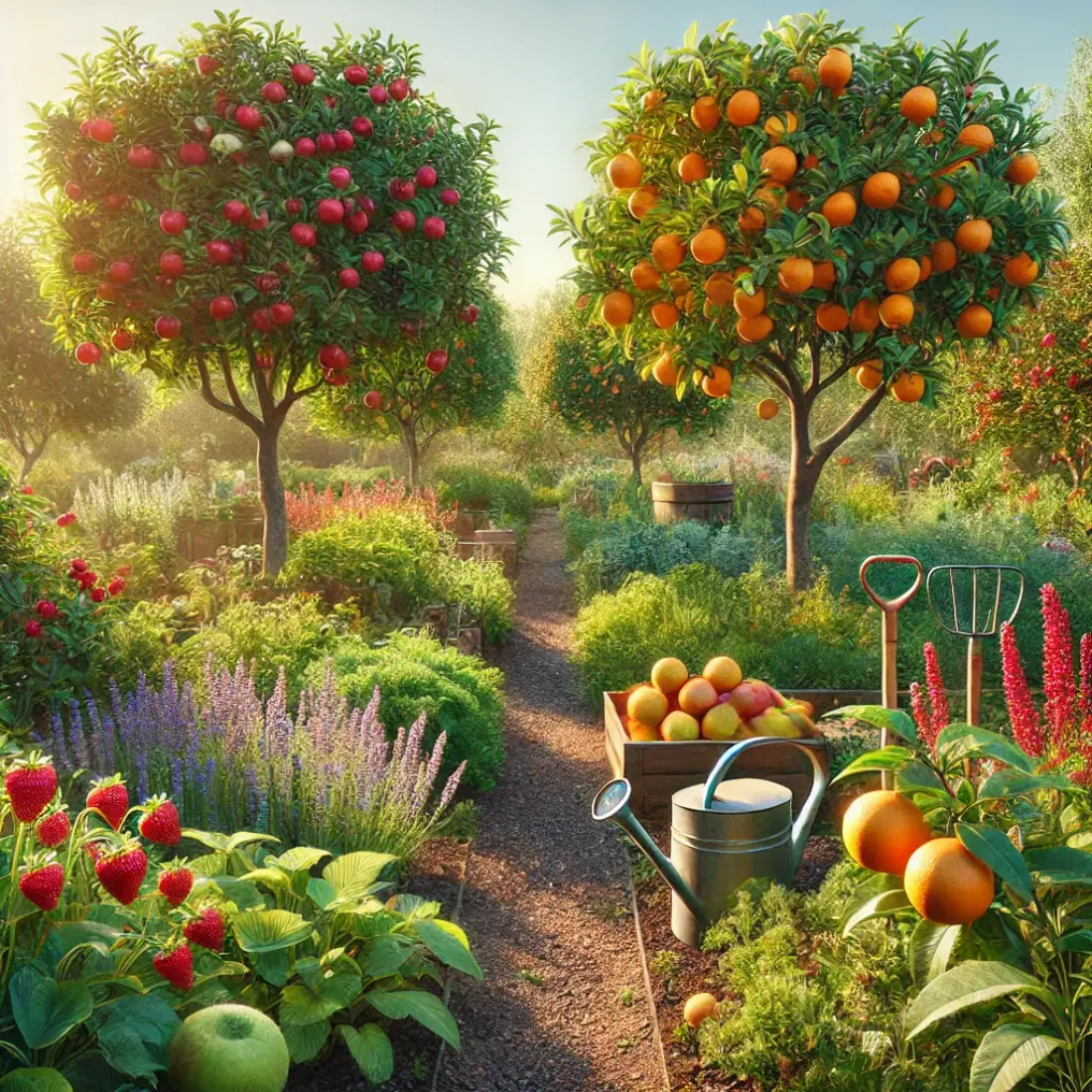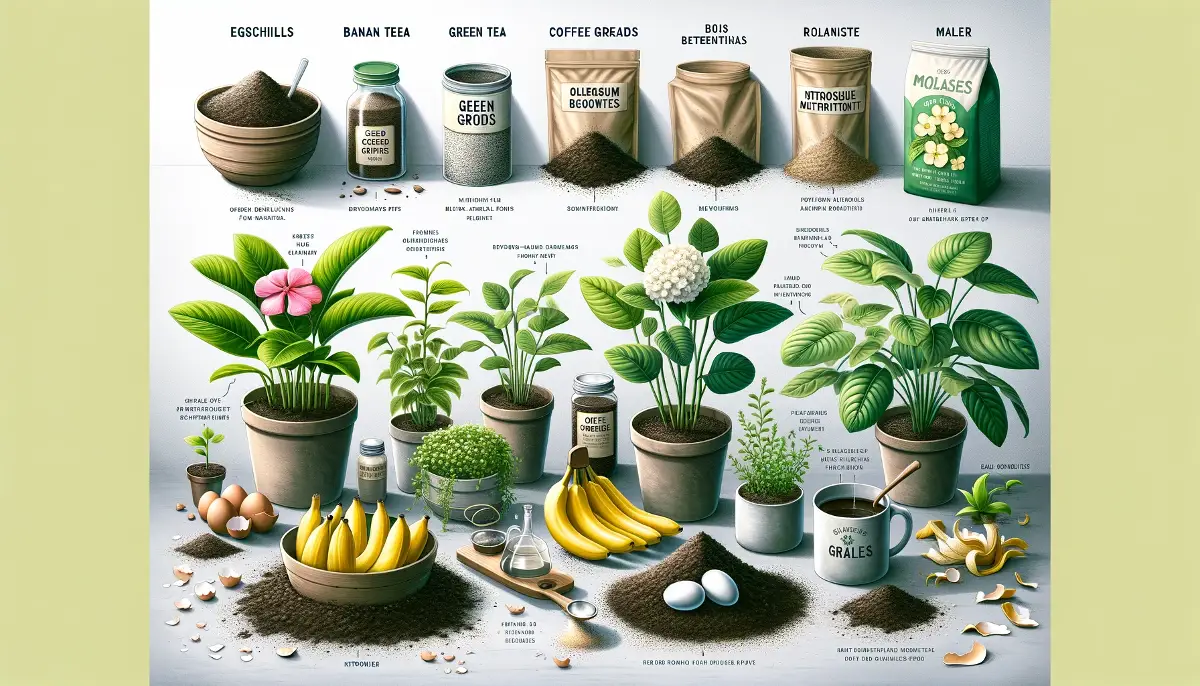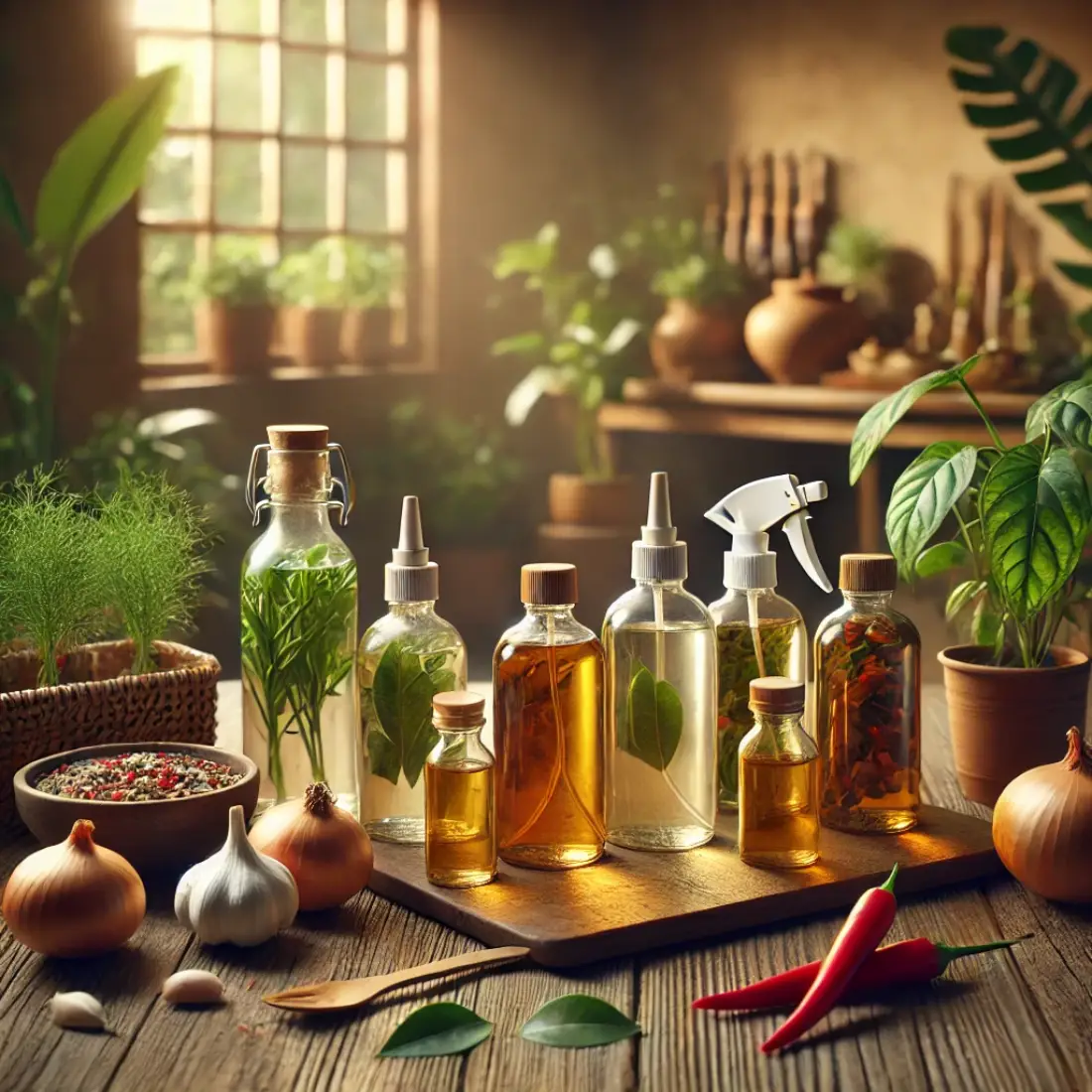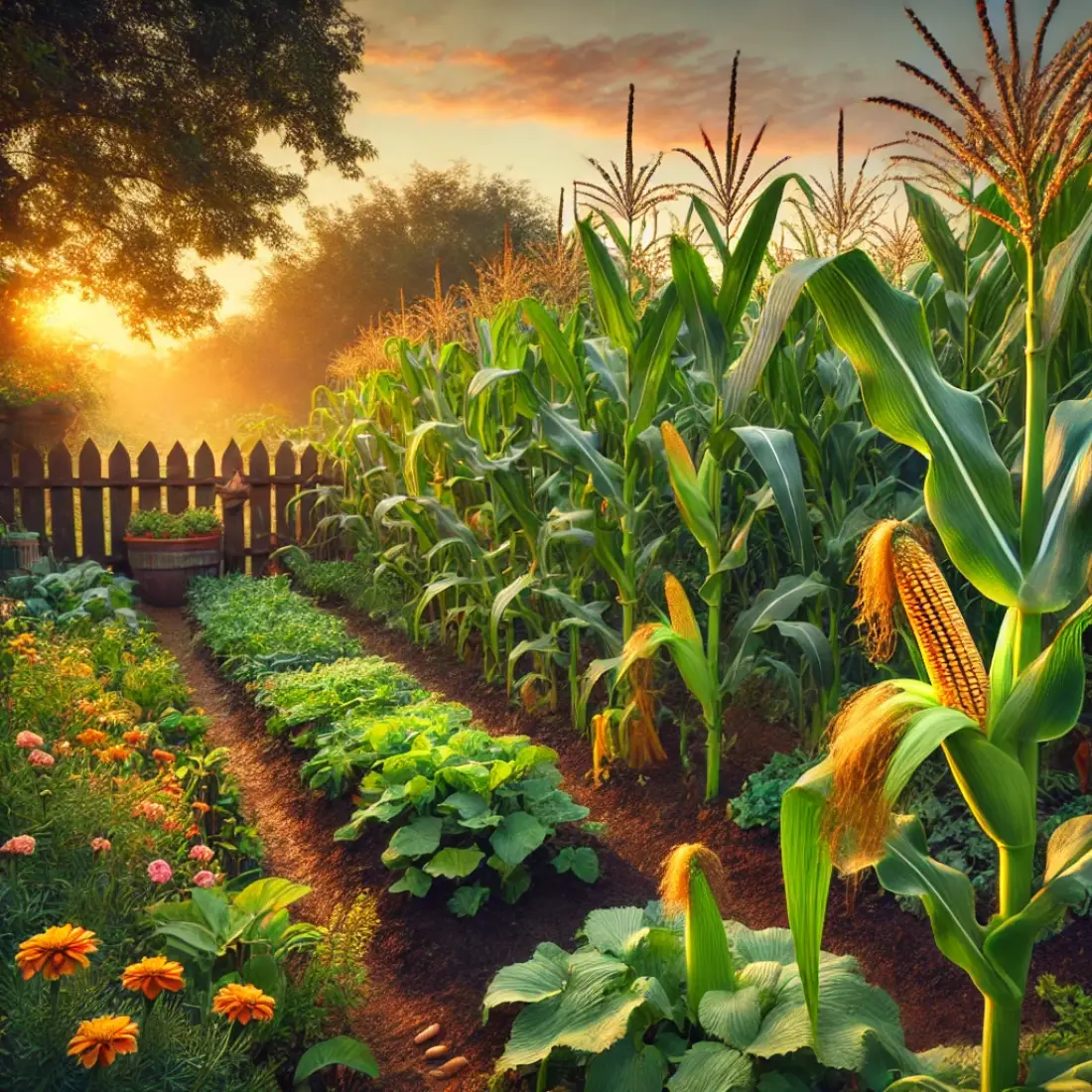Imagine stepping into your backyard and picking fresh, juicy berries straight from the bush. Growing your own berries at home isn’t just satisfying; it’s healthier, cost-effective, and surprisingly easy when you embrace organic methods.
This guide will walk you through practical tips to cultivate your favorite berries naturally, ensuring a lush and chemical-free harvest.
- Growing berries organically ensures healthier, chemical-free fruit.
- Strawberries, blueberries, raspberries, and blackberries are perfect for home gardens.
- Organic methods like composting, mulching, and natural pest control help your berries thrive.
Why Grow Berries at Home Organically?
Homegrown berries are fresher and packed with nutrients compared to store-bought ones. By growing berries organically, you avoid harmful pesticides, promote biodiversity in your garden, and reduce environmental impact. Plus, many berry plants require minimal space, making them ideal even for urban gardeners.
The Best Berries to Grow Organically
1. Strawberries: Sweet and Versatile
Strawberries are one of the easiest berries to grow at home, and they thrive in a range of settings, including raised beds, containers, or hanging baskets. Choose a sunny location with slightly acidic, well-drained soil (pH 5.5–6.5).
If you have limited space, everbearing varieties are a great choice as they produce multiple smaller harvests throughout the growing season.
When planting, space strawberry plants about 12–18 inches apart to allow airflow, which helps prevent fungal diseases. For soil enrichment, mix in plenty of aged compost before planting. Straw mulch works wonders for weed control, moisture retention, and keeping the fruit clean.
Organic care involves watering plants deeply once or twice a week and applying compost tea every few weeks during the growing season. To deter pests, try sprinkling crushed eggshells around the base of plants to ward off slugs, or spray neem oil to prevent aphids.
2. Blueberries: The Antioxidant Powerhouse
Blueberries are a bit picky about their soil, thriving only in acidic conditions with a pH of 4.5–5.5. If your soil doesn’t naturally meet these conditions, amend it with peat moss, pine needles, or organic sulfur. Plant blueberries in full sun with plenty of space between bushes (4–6 feet apart) to allow for air circulation.
For organic care, mulch heavily around the base of the plants with pine needles or wood chips to maintain soil acidity and retain moisture. Water deeply once a week, but be careful not to overwater, as blueberries don’t like soggy roots.
Use lightweight netting to protect the fruit from birds and fertilize twice a year with a nitrogen-rich organic fertilizer like blood meal or fish emulsion.
3. Raspberries: Tangy and Flavorful
Raspberries are resilient and productive, but they require proper support to thrive. Install trellises or stakes to keep canes upright and prevent them from sprawling. Raspberries grow best in slightly acidic soil (pH 5.5–6.5) enriched with organic compost.
Space plants about 2–3 feet apart in rows and mulch generously with straw or shredded leaves to suppress weeds and retain moisture. Regularly prune old or dead canes to prevent disease and promote new growth.
Use natural pest deterrents like planting marigolds nearby, which repel harmful insects. To boost yield, apply compost tea or aged manure in early spring and mid-summer.
4. Blackberries: Rich and Juicy
Blackberries are incredibly easy to grow and require little maintenance once established. Choose a sunny spot with well-drained soil (pH 6.0–6.5) and space plants 3–5 feet apart. If growing trailing varieties, be sure to provide a trellis or wire system for support.
To enrich the soil naturally, mix aged manure or compost into the planting area. Mulch with wood chips or straw to prevent weeds and conserve moisture.
Organic care includes deep watering every 7–10 days and using neem oil or insecticidal soap to keep pests at bay. Prune after harvesting to remove dead canes and make room for new growth.
5. Currants and Gooseberries: Lesser-Known Delights
Currants and gooseberries thrive in partial shade, making them perfect for less sunny garden spots. Plant them in moist, well-drained soil enriched with plenty of compost. Space bushes 3–4 feet apart and mulch heavily to keep the soil cool and moist.
For organic care, apply compost around the base of the plants in early spring. Prune regularly to improve airflow and reduce the risk of fungal diseases. Spray with a solution of neem oil and water to deter pests like aphids.
6. Elderberries: Nutrient-Packed Superfruit
Elderberries are hardy and forgiving plants that thrive in moist, loamy soil. They prefer full sun but can tolerate partial shade. Since elderberries need cross-pollination, plant at least two varieties for a better harvest.
To care for elderberries organically, fertilize annually with a thick layer of compost or leaf mold. Water deeply once a week, especially during dry spells, and use diatomaceous earth to deter common pests. Prune in winter to encourage new growth and maintain a manageable size.
Practical Organic Gardening Tips for All Berry Types
Soil Preparation
Healthy soil is essential for berry success. Test your soil’s pH before planting and amend it naturally with organic materials like compost, aged manure, or green manure crops. For acidic soil-loving berries like blueberries, incorporate peat moss or pine needles.
Mulching
Mulch is key to organic berry gardening. It helps retain soil moisture, suppress weeds, and improve soil quality as it breaks down. Use straw, wood chips, or shredded leaves for best results.
Watering Practices
- Water berries deeply and consistently, especially during flowering and fruiting.
- Avoid overhead watering to prevent fungal diseases. A soaker hose or drip irrigation system is ideal.
Organic Pest Control
- Use companion planting with herbs like basil or flowers like marigolds to repel pests.
- Handpick larger pests like beetles and use neem oil sprays for insects like aphids.
- Protect berries from birds with lightweight netting or reflective objects.
Pruning for Productivity
Regular pruning encourages healthy growth and higher yields. Remove dead, damaged, or diseased canes to prevent the spread of pathogens. Always prune berry bushes during dormancy for the best results.
FAQs About Growing Berries at Home Organically
1. Can I grow berries in containers?
Yes, many berries, including strawberries and blueberries, thrive in containers. Use large pots with proper drainage and nutrient-rich soil.
2. How do I protect my berries from birds?
Use bird netting or hang shiny objects like old CDs around the garden to deter birds naturally.
3. What’s the best organic fertilizer for berries?
Compost, aged manure, and natural fertilizers like fish emulsion or blood meal work well for most berry plants.

